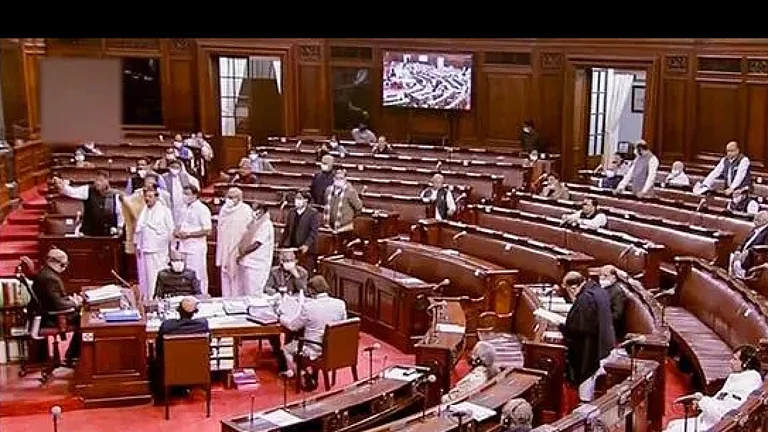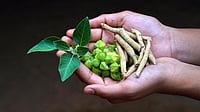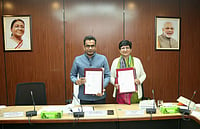Union Health Minister JP Nadda on Saturday said that while technology was transforming medical diagnosis and treatment, “the human touch must never be lost.”
Addressing the 50th Annual Convocation Ceremony of the All India Institute of Medical Sciences (AIIMS) in the national capital, the Minister commended the institute for its pioneering role in medical innovation and its enduring service to the nation.
“AIIMS has taken a lead in artificial intelligence (AI), genomics, precision medicine, and telehealth — areas that are changing the landscape of healthcare,” Mr. Nadda said. “While technology can help in detection and also make patients happier, the human touch and compassion should not go. That must remain.”
Congratulating the graduating students, he lauded AIIMS for its “unparalleled contribution to advancing medical science, education, and patient care in India” and urged young doctors to uphold the highest standards of ethics and empathy while embracing innovation.
“In the field of medical sciences, training, and healthcare delivery, AIIMS has made its own place, not only in India but globally,” he observed, crediting the institute for setting benchmarks in research and clinical excellence.
He said that India's healthcare and medical education ecosystem over the past decade has expanded very fast--from a single AIIMS at the end of the last century, the country now has 23 AIIMS institutions. “This expansion reflects the government’s commitment to ensuring access to quality healthcare and medical training across all regions,” he noted.
The Minister pointed out that the number of medical colleges in the country had increased from 387 to 819 in the past 11 years. Undergraduate medical seats have risen from 51,000 to 1,29,000, and postgraduate seats from 31,000 to 78,000. An additional 75,000 seats are expected to be added across both levels in the next five years, he said.
On the public health front, Nadda highlighted India’s “notable progress” in maternal and child health. Citing Sample Registration System (SRS) data, he said the Maternal Mortality Ratio (MMR) had declined from 130 to 88, while the Infant Mortality Rate (IMR) had fallen from 39 to 27. The Under-5 Mortality Rate (U5MR) and Neonatal Mortality Rate (NMR) have also recorded reductions of 42% and 39%, respectively — both exceeding global averages.
He further pointed out that tuberculosis incidence in India had dropped by 17.7%, more than twice the global rate of 8.3%, as reported in The Lancet.
Nadda also called upon the new graduates to contribute to academics and research while upholding AIIMS’ prestigious legacy. “Remain lifelong learners and innovators, committed to advancing medical science and serving society with compassion,” he urged.
Prof. V.K. Paul, Member, NITI Aayog, also addressed the gathering, underscoring the responsibility of medical professionals to contribute to nation-building. “We have a profound societal responsibility to give back to the community that has nurtured us. As you move forward, let excellence become your daily practice and innovation your guiding principle,” he said.
He encouraged the graduates to take up teaching and mentoring roles to “guide and inspire the next generation of healthcare professionals,” thereby contributing to the vision of a Viksit Bharat. “True nation-building rests on a strong foundation of knowledge, compassion, and continuous learning,” Dr Paul added.
At the convocation, 326 graduates received their degrees, including 50 Ph.D. scholars, 95 DM/MCh specialists, 69 MDs, 15 MSs, 4 MDSs, 45 MSc, 30 MSc (Nursing), and 18 M Biotech graduates.
Seven distinguished doctors were conferred the Lifetime Achievement Award in recognition of their exemplary contributions and dedicated service to AIIMS.
The awardees included Prof. (Dr.) Shail K. Sharma (Biochemistry), Prof. (Dr.) Ravi Bhatia (Neurosurgery), Prof. (Dr.) Vijay Kumar Dada (Ophthalmology), Prof. (Dr.) Dinesh K. Bhargava (Gastroenterology), Prof. (Dr.) Tirath Das Dogra (Forensic Medicine), Prof. (Dr.) Tushar Kanti Chattopadhyay (Gastrointestinal Surgery), and Prof. (Dr.) Sunita Mittal (Obstetrics and Gynaecology).



























